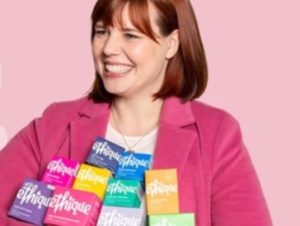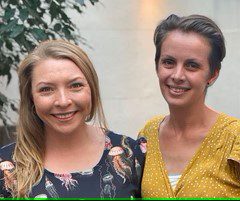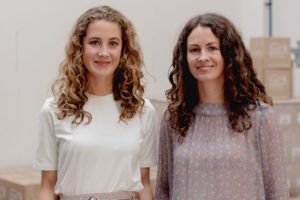Empowering Success: The Case for Implementing Employee Ownership
In the world of B Corp, there are significant points to be scored from adopting some kind of employee ownership scheme in your business model.
But it’s not just about point scoring. As well as boosting your score on your B Impact Assessment (BIA), the benefits of giving employees ownership in the company, drives enhanced productivity, greater commitment, more resilience, and better talent recruitment and retention.
So what’s it all about? This article takes a look at the what, why and how of worker ownership models.
What are employee share ownership plans (ESOPs) and how do they factor into B Corps?
Employee share ownership plans (or ESOPs) are a legal agreement that allow employees to receive and earn ownership in the business that they work for. They are a clearly defined pathway for employees to become shareholders and to benefit from the success of the company that they contribute to.
“There’s no better way to tune people in to creating value than to make them shareholders… I do know it gave our people more understanding and a sense of responsibility for what was going on in the company… in my view it’s a win-win.” David Thodey – Chair of the Board, Xero
Different types of ESOPs exist and are best suited for different businesses, so it’s important to understand which option is best for you.
If you hang out in B Corp world, you probably know that companies score more points for having some kind of employee share ownership plan (ESOP).
And if your company meets the criteria for the Worker Owned Impact Business Model, it’ll bag you up to 30 points in the B Impact Assessment, which is a big bite of the 80 points required to get B Corp certified.
As well, research shows that companies with significant employee ownership grow faster than their conventionally-owned counterparts.
Still though, if you’re a business owner who has done the hard yards to build your company up from nothing, it can seem like a big ask to then just hand over ownership of that company to employees.
Even when you see the research, which shows that companies with significant employee ownership tend to get boosted productivity, enhanced loyalty, and ultimately greater long-term success.
Still, for a conventional company, the idea of shifting to an employee ownership model can seem confusing and complicated. So why would you? There are a few reasons:
THE PROS OF ESOPS
Employee ownership is about granting employees a financial stake or ownership interest in a company. This can take various forms, including share options, profit sharing, or direct share ownership. The goal is to align the interests of employees with those of the organisation, creating a sense of shared purpose and mutual benefits. Benefits of adopting it include:
- Enhanced Employee Engagement and Commitment
Implementing employee ownership can significantly enhance employee engagement and commitment. When employees become partial owners of the company, they have a personal stake in its success. This sense of ownership can drive employees to go the extra mile, leading to increased productivity and dedication to their work. Furthermore, as owners, employees are more likely to take a long-term perspective and actively contribute to the organisation’s growth and profitability.
- Retention and Recruitment of Top Talent
Employee ownership programs can serve as a powerful tool for attracting and retaining top talent. In a competitive job market, prospective employees are increasingly seeking organisations that offer opportunities for growth, financial incentives, and a sense of purpose. Employee ownership provides all these elements. It signals to potential candidates that the company values its employees and rewards their contributions. Additionally, existing employees are more likely to stay with an organisation that offers them a chance to share in its success.
- Improved Productivity and Innovation
Ownership fosters a culture of accountability, empowerment, and innovation. When employees have a say in decision-making and are directly affected by the outcomes, they are more motivated to perform at their best. Employee owners often take on an entrepreneurial mindset, proactively identifying opportunities for improvement, and suggesting innovative solutions. As a result, organisations that embrace employee ownership often experience a surge in productivity and a competitive edge in their respective industries.
- Long-Term Sustainability and Stability
Implementing employee ownership can contribute to the long-term sustainability and stability of a business. As owners, employees are more likely to take a vested interest in the company’s success, leading to increased loyalty and lower turnover rates. This continuity translates into cost savings associated with recruitment, onboarding, and training. Moreover, employee-owned companies tend to have more robust financial performance, as employees are personally invested in the business’s success.
- Healthy Corporate Culture and Trust
Employee ownership can foster a positive organisational culture and build trust among employees. Employee owned companies typically pay more, are less likely to lay people off in a downturn, and they build community wealth. When individuals feel valued, respected, and trusted, they are more likely to collaborate, share knowledge, and work towards common goals. Transparency in sharing financial information and involving employees in decision-making processes creates a culture of open communication and inclusivity. This culture of trust nurtures a supportive environment where employees feel motivated to contribute their best efforts.
By aligning the interests of employees with those of the company, organisations can foster a culture of ownership, collaboration, and shared success. As businesses navigate the evolving landscape, employee ownership serves as a powerful tool to unlock the full potential of their workforce and secure a prosperous future.
TYPES OF EMPLOYEE OWNERSHIP
There are three main types of employee ownership structures that companies can adopt. Here are some common types:
- Share Options: Share options are agreements that give employees the right to purchase company shares at a predetermined price (the exercise price) within a specified period. They often have a vesting period, and employees can exercise the options to acquire shares once they become vested. This allows employees to share in the company’s value appreciation.
- Phantom Shares: Phantom shares is a form of equity-based compensation where employees are granted hypothetical or notional units that mirror the value of the company’s stock. Employees receive cash payments equivalent to the increase in the stock’s value over a certain period, without actually owning the shares. This is similar to a formalised profit-sharing agreement
- Loan to purchase plans: this is a structure that allows employees to acquire shares in the business they work. The company will usually issue a zero or low-interest loan to the employee to pay for the shares upfront. Over time, based on a variety of ways such as dividend distributions, cash contributions and salary sacrifice the loan to the company is paid down and the employee owns the shares outright.
Each type has its own specific characteristics and benefits, and companies can choose a structure that aligns with their goals and the needs of their employees. It’s important to consult with legal and financial professionals to understand the specific details and implications of each type of employee ownership.
HOW TO SWITCH TO EMPLOYEE OWNERSHIP
It’s a lot easier than most people think.
To begin, the initial step is to determine the most suitable employee share scheme for your business. We strongly advise consulting with your professional advisors, such as lawyers or accountants, as a first step. This ensures that you select the optimal scheme to achieve your desired outcomes and are well-informed about the various tax implications involved. It’s important to get this right, and experts such as Orchestra have resources to guide your decision.
Orchestra is one of Australasia’s leading employee ownership softwares, providing a two-sided portal which enables companies to streamline the management process of the ESOP and even more importantly provides an online portal for ESOP participants to login to interact and engage with their ESOP.
Once you have made a decision on the approach, the allocation of the ESOP pool takes place. Typically, this pool represents around 5-15% of the total shares in the company, although it depends on the stage of the business. Employees then engage in negotiations regarding their ESOP and can utilise tools like Orchestra to effectively manage and monitor their progress towards ownership.
Employee Share Schemes can be intricate and challenging to maintain. So it’s important to have a dedicated management tool, providing employees with complete transparency regarding the benefits they accrue over time.
THE BASICS OF B CORP
What is a B-Corp certified company?
Certified B Corporations are businesses that meet the highest standards of verified social and environmental performance, public transparency, and legal accountability to balance profit and purpose. B Corps are accelerating a global culture shift to redefine success in business and build a more inclusive and sustainable economy. In essence, they are businesses which undergo an independent process of certifying the ongoing improvement of their environmental and social impacts.
What are the advantages of being a B-Corp company?
What are the benefits of becoming a B Corp? There are just so many! Where do we start? Okay let’s start with these six gooduns.
- Recruitment: B Corps attract the best talent and have better staff retention.
- Profitability and competitive edge: Empirical data shows that B Corps are making more money than non-B Corps in their industry. As well, B Corps proved more resilient through the pandemic.
- Brand loyalty: More customers want sustainable brands and are voting with their wallets.
- Access to capital: Investors are now demanding businesses they give money to have transparency on their ESG.
- Cost savings: By scrutinising their operations, B Corps have found innovative ways to significantly cut costs.
- Legislation-proof: Have you noticed the raft of new ESG legislation that’s been passed all over the world? Becoming a B Corp means you’re not going to be left behind.
Why we are seeing more companies in NZ and Australia becoming B-Corps?
More than 600 companies across Aotearoa New Zealand and Australia are Certified B Corporations, representing industries from accounting to waste management. There are many drivers of this growing interest but in the main, business owners have read the writing on the wall. The old way of doing business is extractive, destructive and unsustainable. A new low carbon economy is fast emerging as the world gets to grips with solving the unprecedented challenges of the climate crisis and a population approaching 10 billion.
While the business world has driven much of this destruction, the business world is also the only sector that has the innovation, creativity and resources necessary to quickly find and scale the solutions.
Ultimately, business owners and employees are just people. And most people don’t want to trash their planet and their communities. They want to see their children and grandchildren thrive. This is also driving the growth of the B Corp movement because certification offers businesses an ESG roadmap. Most people want to be part of the solution they just don’t know how. B Corp shows them how.
What is the process involved? How long does it take?
B Corp certification is a positive screening tool. In other words, you score points for the good you’re doing, for example, treating your staff fairly, supporting disadvantaged groups in your community, or helping regenerate the environment.
The types of companies that are interested in a certified B-Corp are probably already demonstrating some kind of ongoing impact in social and environmental improvement, so they may be closer to being B-Corp certified than they think!
In terms of timeline, it varies depending on the number of new initiatives a business decides to adopt and how much effort they require. As a rule of thumb, expect it to take 12 to 18 months, depending on the size and complexity of the business.
The first step is to have a conversation with a group or consultant that know what they’re talking about, such as the team at Grow Good, who offer free health-checks to better understand what would be involved in getting your business B-Corp certified.
Would you like help with that?
Here at Grow Good, we exist to coach people through the process of becoming B Corp certified.
The B Corp Impact Assessment framework is free to access and provides dozens of useful insights and opportunities for any business but it can be confusing and overwhelming.
We are consultants who have completed the official training provided by B Lab, the organisation that runs the B Corp certification programme. We live, breathe and sleep B Corp. We are your B Corp buddies. We make it easier. We translate the questions into plain English and give you a host of template policies and example documents so you don’t have to start everything from scratch or reinvent the wheel. We show you how to unlock the big point scoring areas most relevant to your business.
Are you ready to go B Corp? It’s completely your decision but if you are, and if you think it would be helpful to have a guiding hand through the process, we’re here to help. Drop us a line or jump straight in and book a free 30 min discovery call with me.
Yours in purpose,
Ngā manaakitanga,
Tamara
Are you Ready to B Better?
Ready to take the plunge towards becoming a B Corp business? Let the Grow Good team guide you through the process either through 1:1 coaching or group coaching on one of our regular cohort programmes for micro businesses. Book a 30-min discovery call with Tamara here.
You can use your Business as a Force for Good.
Just get started. Take the first step. Get in touch



 It all started because Laura and Steph were on a mission to create the best dog treats humanly possible.
It all started because Laura and Steph were on a mission to create the best dog treats humanly possible.

